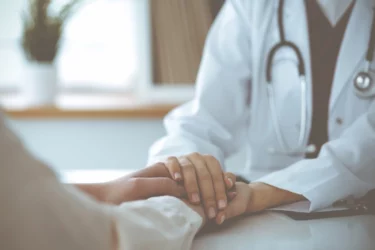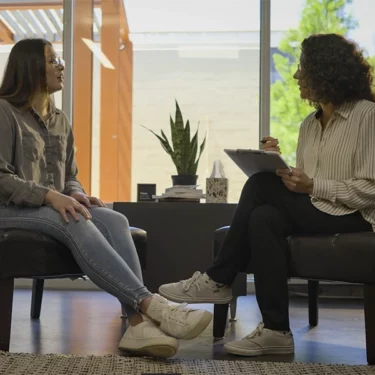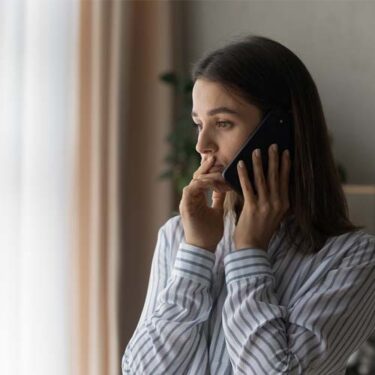Kindness. Call it empathy, thoughtfulness, compassion — each word is an aspect of the same thing — it’s about telling someone else, “You matter.” And it’s an underlying principle of the work that we do here at the National Council for Mental Wellbeing. After all, the National Council exists to make mental wellbeing, including recovery from substance use challenges, a reality for everyone.
In Mental Health First Aid (MHFA), we teach ordinary non-experts how to care for someone who appears to be hurting, whether that’s because of circumstances, a mental health concern or substance use. They learn the 5-step MHFA Action Plan (ALGEE):
- Approach the situation and assess for risk of suicide or harm. (Call 911 in an emergency!)
- Listen nonjudgmentally.
- Give reassurance and information.
- Encourage appropriate professional help.
- Encourage self-help and other support strategies.
With each step, the First Aider validates the person, their feelings, their pain. They demonstrate compassion and caring. In teaching these five skills, MHFA gives people the tools they need to keep from turning the other way when someone around them needs help.
That’s good for everyone’s spirit – and it’s good for society. It turns out kindness is contagious, according to Jamil Zaki, author of The War for Kindness and a psychology professor at Stanford University. In “Kindness Contagion,” an article for Scientific American, Zaki wrote:
“We find that people imitate not only the particulars of positive actions, but also the spirit underlying them. This implies that kindness is contagious, and that it can cascade across people, taking on new forms along the way. … By emphasizing empathy-positive norms, we may be able to leverage the power of social influence to combat apathy and conflict in new ways. And right now, when it comes to mending ideological divides and cultivating kindness, we need every strategy we can find.”
Other researchers point out that kindness has physical benefits, too, reducing stress, anxiety and blood pressure as it increases the body’s production of feel-good hormones like dopamine, oxytocin and serotonin.
Marianna Pogosyan, Ph.D., a lecturer in cultural psychology, wrote about kindness on the Psychology Today blog (April 11, 2019).
“If you recall the rush of positive feelings you experienced the last time you performed a kind act, you would likely agree that kindness feels good. This distinct sense of satisfaction, the ‘warm glow’ or the ‘helper’s high’ that ignites the brain’s reward systems, is said to be among the drivers of pro-social behavior in humans. Kindness not only feels good but also does us good. To begin with, connecting with others through kind deeds allows us to meet our basic psychological needs of relatedness and belonging. Performing acts of kindness can also increase life satisfaction, positive mood and peer acceptance. It can stimulate the release of serotonin and oxytocin, which can increase trust, reduce fear and anxiety, and help us read each other’s minds. For the elderly, prosocial behavior can promote longevity. For teenagers, it can boost self-esteem. Kindness also makes us happy. Researchers at Oxford University recently found that we can increase our happiness levels when we are kind to those with whom we enjoy close as well as weak ties (for example, family and strangers). Even observing others perform kind acts and, importantly, being kind to ourselves, can make us happier.”
Today is Random Acts of Kindness Day – an observance created by the Random Acts of Kindness Foundation. This small nonprofit in the San Francisco Bay area has strived to “make kindness the norm” since the mid-1990s, with curricula for children and suggestions for workplaces.
You may have heard stories in the news about cars at a drive-thru, each driver paying for the order of the one behind them, or someone who drives through a toll and pays for the next person in line, too. These are certainly acts of kindness. So is a smile, and so is asking “Are you OK?”
I don’t think it’s a stretch to say that life today is harder than it was pre-pandemic. At best, civil discourse seems to be waning, replaced by yelling and name-calling. But you can make a difference. You can be kind – today and every day. And when you are, I bet you’ll see more kindness, too.
If you want to practice more kindness in your community, consider taking an MHFA course. Learn more at MHFA.org.



